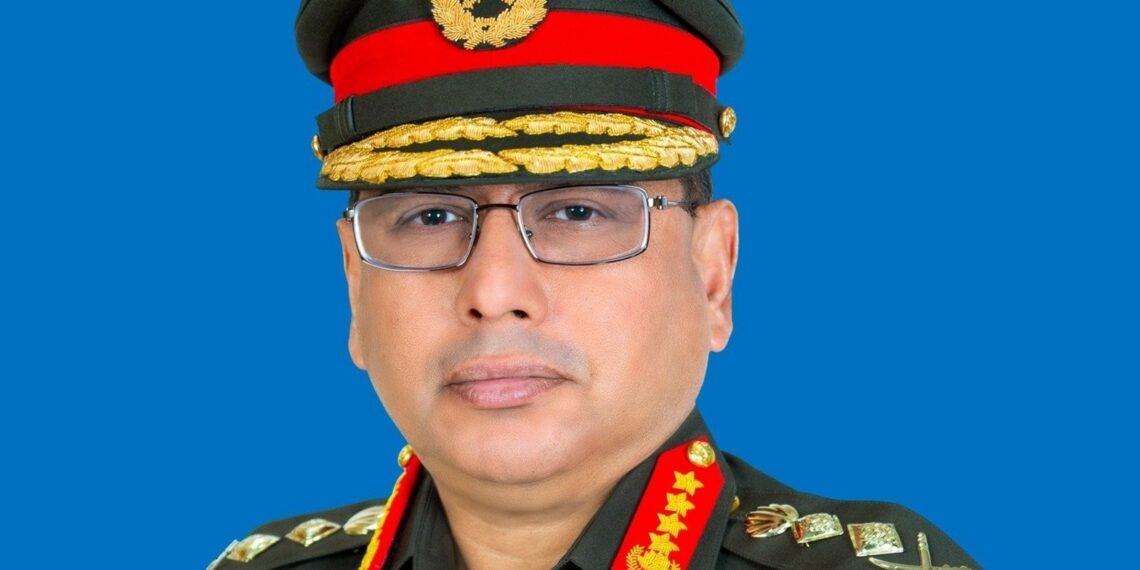Three Dhaka-based US diplomats, led by American Charge d”Affaires Tracey Ann Jacobson, met Bangladesh Army chief General Waker-uz-Zaman this morning in a bid to make a last-ditch attempt to convince him on the criticality of a “humanitarian corridor” on the Bangladesh-Myanmar border, Northeast News has reliably learnt.
This followed a meeting between Bangladesh Chief Adviser Mohammad Yunus, National Security Adviser and High Representative to the Chief Adviser on Rohingya Crisis and Priority Issues Affairs Khalilur Rahman and Principal Staff Officer in the Armed Forces Division (AFD) Lieutenant General Kamrul Hassan on May 18 afternoon at the former’s Tejgaon office.
More importantly, Gen Zaman will address all “available officers” in Dhaka at the Army’s Senaprangan facility at 9:30 am BST on May 20.
The Army authorities have issued instructions that the attending officers must be dressed in their “combat uniforms”. Following this meeting, Gen Zaman will meet Yunus one-on-one.
It is learnt that during this meeting, Yunus, Khalilur Rahman and Lt Gen Hassan drew up a plan to use the good offices of the American Charge d’Affaires so she could convince Gen Zaman to give in to the necessity of the “humanitarian corridor” for the passage of logistics and supply of provisions to the Rakhine State in Myanmar.
While it was not immediately known whether Gen Zaman was convinced by the arguments presented by the US diplomats’ team, which included Political and Economic Counselor Eric Geelan and Defense Attache Lt Col Michael DeMichiei, Bangladeshi security service sources said that the Army chief “did not budge from his original position”.
The two other service chiefs from the Air Force and Navy are fully supportive of Gen Zaman’s position.
It may be recalled that on May 11, after Gen Zaman’s visit to the US the same day was cancelled following a suggestion to that effect by Mohammad Yunus, the Army chief sought the immediate the removal of Lt Gen Hassan who had rushed to meet Jacobson at the US embassy in Dhaka’s Baridhara neighbourhood.
The AFD’s position on the “humanitarian corridor” issue is that the “only way to effectively address the ongoing border security challenges, maintain a stable humanitarian corridor and reduce the burden on the BGB is declaring the Bangladesh-Myanmar border a Military Operations Zone (MOZ)”.
This position, which reflects the AFD’s stand, would allow the Bangladesh armed forces to “take full control of the border and secure it effectively, enabling the proper distribution of resources and freeing up the BGB for other important security tasks, including the managing the border with India”.
ALSO READ: NIA arrests Manipur militant in connection with woman’s brutal murder
For the opposing group within the Bangladesh Army, the prevailing security situation along the Bangladesh-Myanmar border is an outcome of the geopolitical and geostrategic measures that the United States seeks to put in motion by employing the Bangladesh Army in clandestinely backing the Arakan Army and other People’s Defence Forces in Myanmar.
For this section, the emergent security situation in Bangladesh and Myanmar could cast a shadow over China, Russia and India – each with their economic interests in the Rakhine State – who could get enmeshed in a “geopolitical competition” that in turn could push Bangladesh to the centre of this storm.















